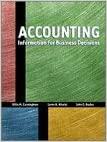



EYK 14-5. Accounting Research Problem: General Mills, Inc. REQUIRED: Using the fiscal year end 2019 annual report for General Mills, Inc. and the figures from the 2017 annual report as noted below, calculate the financial ratios for 2019 and 2018 indicated using the EXCEL template provided: 1. Gross profit percentage 2. Return on sales 3. Asset turnover 4. Return on assets 5. Return on common stockholders' equity 6. Current ratio 7. Quick ratio 8. Operating-cash-flow-to-current-liabilities ratio 9. Accounts receivable turnover 10. Average collection period 11. Inventory turnover 12. Days' sales in inventory 13. Debt-to-equity ratio 14. Times-interest-earned ratio 15. Operating-cash-flow-to-capital-expenditures ratio 16. Earnings per share 17. Price-earnings ratio 18. Dividend yield 19. Dividend payout ratio Total assets 2017 = $21,812.6 Total stockholders' equity 2017 = $4,327.9 Total current liabilities 2017 = $5,330.8 Accounts receivable 2017 = $1,430.1 Inventory 2017 = $1,483.6 Year-end closing stock price May 2019 = $50.93 Year-end closing stock price May 2018 = $39.37 Perform a comparative analysis of the data between the two years. Comment briefly on the changes from fiscal 2018 to 2019. Identify trends and explain the implications of each trend. The following table sets forth selected financial data for each of the fiscal years in the five-year period ended May 26, 2019: 575.9 In Millions, Except Per Share Data, Fiscal Year Percentages and Ratios 2019 (a) 2018 2017 2016 2015 (6) Operating data: Net sales $ 16,865.2 $ 15,740.4 $ 15,619.8 $ 16,563.1 $ 17,630.3 Gross margin (c)(d) 5,756.8 5,435.6 5,567.8 5.843.3 5,967.8 Selling, general, and administrative expenses (d) 2.935.8 2.850.1 2.888.8 3,141.4 3,389.9 Operating profit (d) 2,515.9 2.419.9 2.492.1 2,719.1 2.071.8 Net earnings attributable to General Mills 1,752.7 2.131.0 1,657.5 1.697.4 1,221.3 Advertising and media expense 601.6 623.8 754.4 823.1 Research and development expense 221.9 219.1 218.2 222.1 229.4 Average shares outstanding: Diluted 605.4 585.7 598.0 611.9 618.8 Earnings per share: Diluted 2.90 $ 3.64 S 2.77 $ 2.77 $ 1.97 Adjusted diluted (c) (e) s 3.22 $ 3.11 S 3.08 $ 2.92 $ 2.86 Operating ratios: Gross margin as a percentage of net sales (d) 34.1% 34.5% 35.6% 35.3% 33.8% Selling, general, and administrative expenses as a percentage of net sales (d) 17.4% 18.1% 18.5% 19.0% 19.2% Operating profit as a percentage of net sales (d) 14.9% 15.4% 16,09% 16.4% 11.8% Adjusted operating profit as a percentage of net sales (c) (d) (0 16.9% 16.6% 17.6% 16.8% 15.79% Effective income tax rate 17.7% 2.7% 28.8% 31.4% 33.39% Balance sheet data: Land, buildings, and equipment s 3,787.2 $ 4,0472 S 3,687.7 S 3.743.6 $ 3,783.3 Total assets 30.111.2 30.624.0 21,812.6 21,712.3 21,832.0 Long-term debt, excluding current portion 11,624.8 12.668.7 7,642.9 7,057.7 7,575.3 Total debt (c) 14,490.0 15,818.6 9,481.7 8,430.9 9,191.5 Cash flow data: Net cash provided by operating activities (f) s 2.807.0 $ 2.841.0 s 2,415.2 $ 2,764.2 $ 2,648.5 Capital expenditures 537.6 622.7 684.4 729.3 712.4 Free cash flow (c) 2,269.4 2.218.3 1,730.8 2,034.9 1,936.1 Share data: Cash dividends per common share s 1.96 $ 1.96 S 1.92 $ 1.78 $ 1.67 (a) In fiscal 2018, we acquired Blue Buffalo. Please see Note 3 to the Consolidated Financial Statements in Item 8 of this report. (b) Fiscal 2015 was a 53-week year, all other fiscal years were 52 weeks. c) Please see "Glossary" in Item 8 of this report for definition. (d) In the first quarter of fiscal 2019, we retrospectively adopted new accounting requirements related to the presentation of net periodic defined EYK 14-5 - General Mills to calculate averages use l(current year balance + prior year balance)/2) round percentages to 1 decimal place; round other answers to 2 decimal places a itsent the formula here FY 2019 FY 2018 Gross profit percentage Return on sales Asset turnover Return on assets Return on common stockholders' equity Current ratio Quick ratio Operating cash flow to current liabilities ratio Accounts receivable turnover Average collection period Inventory turnover Days' sales in inventory Debt to equity ratio Times interest earned Operating cash flow to capital expenditures ratio Earnings per share Price-earnings ratio Dividend yield Dividend payout ratio b Analysis










